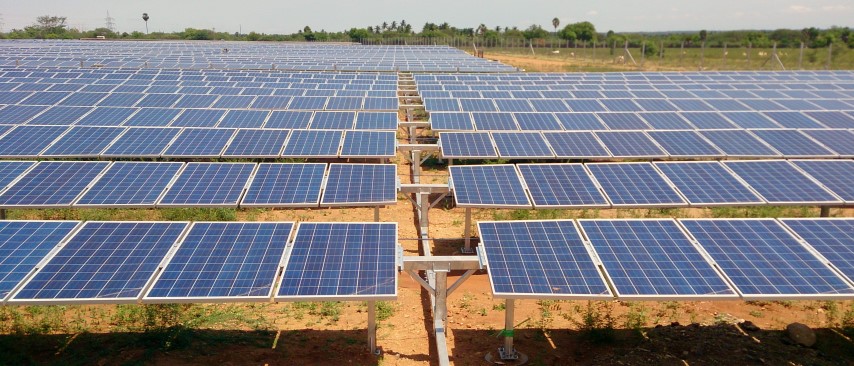India’s impressive 2016 for solar showed no signs of slowing down in the year’s final month, with data from market analysts Mercom Capital Group revealing that more than 1.7 GW of new solar capacity was tendered in December.
Accounting for the majority of the new solar capacity offered was the Solar Energy Corporation of India (SECI), the government’s sanctioned solar division that is the driving force behind a push to build 1 GW of rooftop solar PV atop government buildings nationwide.
In addition to SECI’s 1 GW worth of tenders, Neyveli Lignite Corporation (NLC) also issued two solar tenders in December for 500 MW and 250 MW, to be set up in Tamil Nadu and Odisha respectively. The remaining capacity offered came from Hindustan Aeronautics Limited (HAL) for 15 MW to be built at the HAL Ojhar Township in Nasik, and 10 MW from Rajasthan Electronics and Instruments on behalf of the Oil and Natural Gas Corporation (ONGC) for a project in Gujarat.
Mercom Capital said that the 1,776 MW of tendered solar capacity in December was more than double the 755 MW tendered in November.
With 2016 ending strongly, thoughts now turn to what 2017 has in store for India’s solar market. The early signs are good, following the news on January 1 that the Tamil Nadu Electricity Regulatory Commission (TNERC) has permitted the Tamil Nadu Generation and Distribution Corporation (TANGEDCO) to issue a further 500 MW tender for solar through competitive bidding.
An earlier TANGEDCO tender issued late in 2016 was met with a lukewarm response by developers due to mounting problems in the state concerning late payments and curtailment. TANGEDCO is hopeful that this latest tender can prove more attractive, with reports in the local media suggesting that the utility has sought a procurement price of INR 4.50/kWh ($0.07/kWh).
This content is protected by copyright and may not be reused. If you want to cooperate with us and would like to reuse some of our content, please contact: editors@pv-magazine.com.



By submitting this form you agree to pv magazine using your data for the purposes of publishing your comment.
Your personal data will only be disclosed or otherwise transmitted to third parties for the purposes of spam filtering or if this is necessary for technical maintenance of the website. Any other transfer to third parties will not take place unless this is justified on the basis of applicable data protection regulations or if pv magazine is legally obliged to do so.
You may revoke this consent at any time with effect for the future, in which case your personal data will be deleted immediately. Otherwise, your data will be deleted if pv magazine has processed your request or the purpose of data storage is fulfilled.
Further information on data privacy can be found in our Data Protection Policy.